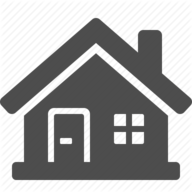Montreal Private Schools. English Private Schools & French Private Schools.
School choice options available to parents have increased dramatically in recent years, but whether you are choosing a school for the first time for your child or your child is making the transition to a new school, you probably have many questions. What are your options? How much choice do you really have? What's the best option for your child and your family? Where should you begin?
You can also get familiar with the potential school at the Montreal Private School Expo that takes place every year in September (http://www.ourkids.net/expo/montreal-expo.php) or visit the school on line. If you like what you see, call and make an appointment to visit the school in person because no amount of reading or research about a school can tell you as much as you'll learn by actually visiting the campus. Even a short visit, when you know what to look for and what questions to ask, will guide you in making the right decision. Parents truly intent on finding the best school for their child, have to do the legwork. In addition to Open House days that each school has once a year, they would be glad to schedule for you a supervised private visit. Go prepared. When you visit a school, be sure to ask questions and observe the environment. The sample questions below can help you get started.
Some of the questions you would want to ask:
Does this school have a particular educational philosophy or mission?
What is this school's approach to student discipline and safety?
What are the class sizes?
How does this school encourage and monitor students' progress toward meeting grade-level standards?
What kinds of library resources are available to students?
How is technology used to support teaching and learning at this school?
How do the arts fit into the curriculum? What extracurricular opportunities (sports, clubs, community service, and competitions) are available for students?
How does this school support students who have academic, social or emotional difficulties?
What are some highlights of this school's curriculum in reading, math, science and social studies?
How does this school keep parents informed of school information and activities?
How does the school guide and prepare students for major academic decisions that will define their options in high school and beyond?
Does this school have a particular academic focus, such as science or humanities?
Where do students go after they graduate? How many attend four-year colleges?
Are counselors available to help students make important decisions about classes and post-graduation plans?
How do students get to school? Is there a parking lot, and are buses (public or district-provided) available?
Things to look for
Do classrooms look cheerful? How well are the facilities maintained? Are bathrooms clean and well supplied, and do the grounds look safe and inviting?
Do teachers seem enthusiastic and knowledgeable, asking questions that stimulate students and keep them engaged?
Does the principal seem confident and interested in interacting with students, teachers and parents?
How do students behave as they move from class to class or play outside?
So how do you know what's right for your child? Visit the schools and ask the teachers lots of questions. Read school profiles. At the end of the day, the best school for your child is a highly personal decision based on your family; your values; and, most important, the special needs, idiosyncrasies, and interests of your kid. Think about your child's needs and your family's needs. Consider the personality of your child. A quiet child might fare better in a smaller school or a school with small class size. If you have a budding musician or scientist, you'll want to look for a school that has programs in these areas. Is it important to you that your school be close to home or your place of work? Or will you need a school with before and after-school care?
When you are looking for a Montreal private school, be sure that the school is registered with and respected by the Ministère de l'Éducation (the Ministry of Education of Quebec). Get all the facts you can gather about the reputation of the school, its principal and teachers.
You can also consult the rankings of the Fraser Institute, which ranks schools based on province. However, be sure to weigh the rankings against your own values and the needs of your child. You do not want to choose a private school based only on the opinions of others.
You will also need to decide if you want your child to study in a single sex school or a coed school.
Some of the pros of single sex schools:
- Children come out of their shell and break their stereotypical behavior and roles. It is a pleasant way to increase confidence. Students get courageous, inquisitive, and eager when they are able to be who they are. They get eager in exploring non-conventional subjects like computers, mathematics, and technology.
- Girls become more extroverts. They drop their timidness and start taking risks. They get into competitions easily. They participate in outdoor activities and sports without caring that they may appear like tom boys. In short they become more open to the outer world and flourish more.
- Boys also become freer and outspoken in participating in activities without worrying about what girls may think about it, like enjoying playing orchestra and poetry.
- Boys and girls have different learning patterns, which is easier to address in single sex classes. Each gender learns according to their potentials, especially in schools which are under performing.
- Children don't learn how to interact with the opposite sex and miss out on a life experiences, because school is not only an institution to teach academic subjects, like reading and math, but it is also a social playground to experiment and learn who you are. While separating students by sex may cause an increase in academic success, it will result in a huge gap in their social skills.
- Single sex education for boys sometimes becomes very problematic. Their behavior may become negative and impossible to control at times.
- This type of education may strengthen or support academic stereotypes like girls are better in social science and boys are better in mathematics.
- The learning pattern in single sex education makes use of the areas where they are strong and does not pay attention to areas of weakness.
When you've made your choice, the next step is to find out what's required to enroll. What are the admittance requirements and annual tuition fees. Read more about the application process http://www.ourkids.net/school/application-process.php.
Application dates vary from school to school, but generally an application is made between September and January for the following fall; acceptances are usually made in mid-March/April. However, many schools have rolling admissions which means a child may apply and be accepted at any time during the year, space permitting.
Due to special education laws, public schools must educate all children and provide the necessary programs to meet their special needs. This means that all school districts have special education programs and teachers who are trained to work with special-needs students. Private schools do not have to accept children with special needs, and many choose not to (although there are a small number of private schools designed for special-needs children). As a result, most private schools do not have special education programs or teachers trained to work with that student population. Some private schools will try to help all the students they admit, but extra resources may come at an additional cost. Other private schools practice something called "counseling out" - recommending that children with learning disabilities look elsewhere for a school.
Every family has a different reason for choosing a private education. Your child may excel in sports or arts and you want to accommodate their training schedule in their school day. Perhaps your child is gifted or has special needs. Maybe you attended private school as a child and want your children to enjoy the same experience. Check information carefully, paying attention to details and decide wisely, basing your decision not only on the rating of the school, but first of all, on the school's qualities so they fit the best your family values and your child's needs.
Académie Marie-Claire, Alexander von Humboldt German International School, École Montessori International, Centennial Academy, College Prep International, Kells Academy, Kuper Academy, Lower Canada College, Miss Edgar's & Miss Cramp's School, The Priory Schoo, Selwyn House School, St. George's School of Montreal - École St-Georges de Montréal, Trafalgar School For Girls, Vanguard School, Villa Maria, Villa Sainte-Marcellines & College International des Marcellines, West Island College


